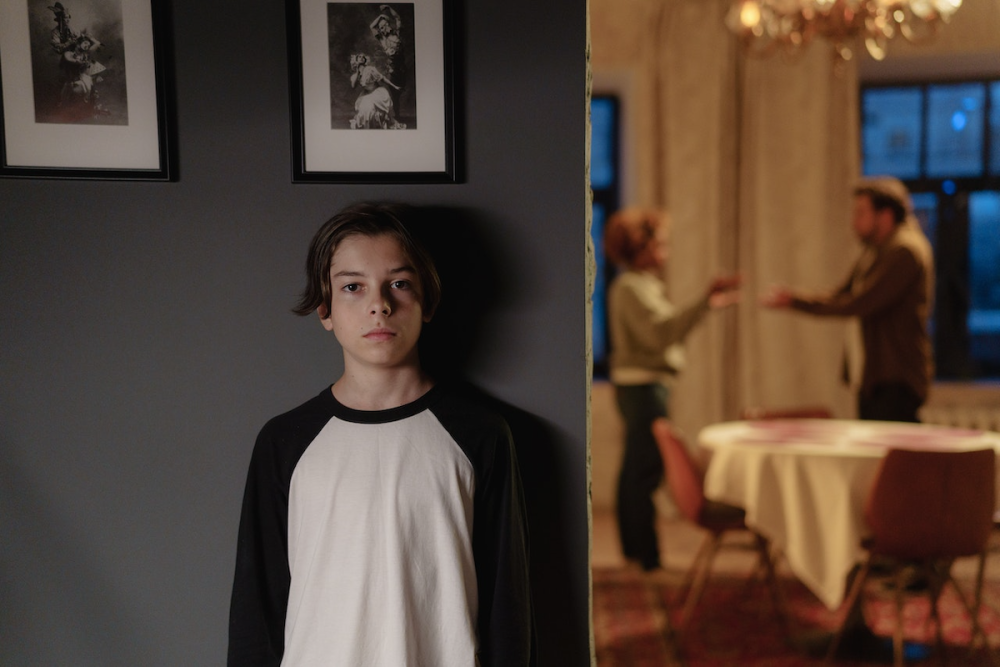
Today’s post is by Allison K Williams (@GuerillaMemoir).
You want to share your truth.
You also want to avoid hurting parents, children, exes—or being further hurt by them.
How can memoirists handle the paradox? The more broadly your story spreads, the more people your words help … and the more likely it is that your book will be seen by someone who is hurt by what you wrote. Your ex might threaten your custody. Your kids might stop talking to you. Your mom might say she’s “not mad, just disappointed.”
We’ve all heard the Anne Lamott quote, “If people wanted you to write warmly about them, they should have behaved better.”
But not everyone feels confident laying out the whole truth.
What if I hurt someone I love?
What if I embarrass a friend?
What if my ex doesn’t like what I wrote and sues me? Can they even do that?
Your story matters, and you get to write it the way you remember. It’s called a memoir, not a “comprehensive review of all facts.” But you can take steps throughout your writing and publishing process to minimize fallout and family strife.
First, don’t borrow trouble.
Write the book. Write the whole book. You may discover as you write that your story isn’t actually about the abusive ex or the troubled child. Maybe you end up with three scenes that show why you went to medical school, and the one where your dad says you’re not smart enough to become a doctor isn’t the strongest one. It doesn’t matter if he golfs with attorneys, you’re focusing on better scenes.
Show your antagonists’ behavior and their effects.
You don’t have to call Grandpa an alcoholic if you show his collection of empty, hidden brandy bottles. Describing what actually happened without accusatory words will show the reader who they are. And your writing will be stronger for making the reader put the clues together—just like you had to when the situation was happening.
Very few of the people who hurt us woke up every morning, yawned, stretched, and said, “I can’t wait to start oppressing the narrator today!” Show why they behaved the way they did. It’s not excusing their behavior to give the context of cultural or family issues, addictions, or their own bad treatment they’ve been doomed to repeat.
Seek their perspective if you can.
If you’ve gone no-contact, ask other family members what they remember. When you do, pretend you’re making a documentary. Instead of asking, “Mom, why did you make me eat lead paint chips as a child?” start with, “Tell me about how you fed the family while you and Dad were both out of work. What were our meals like?” Even if you’ve got to cry in your car after the interview, you’ll get better, deeper, more interesting details if you start from neutral.
Wait to tell people what you’ve written.
Wait until you’ve got the deal—whether that’s a Big-Five publisher or a strong self-publishing plan—before telling anyone in the book what you’ve written. Don’t get everyone riled up if it turns out this is your “practice” book. Or your editor says, “Let’s make it self-help and take out all those bits about your ex.”
When you do have a publication date, give others awareness of it rather than asking permission. You’re not looking for a gold star, you’re letting them know, “I’ve written my memories, and I’m sure your story is a little different.” And stay real—how many of your relatives will actually seek out, purchase, and read your book? Generally, your family is not your audience anyway.
Rehearse how you’ll respond to questions you’re dreading.
Tell your sibling, “Isn’t it fascinating how we can grow up in the same family and have such different experiences? I’d love to read your version of the story someday.”
Tell your parents, “You don’t have to read it, but I hope you’ll support me sorting out my own experiences on paper.” It’s not the first time you’ve hurt your parents’ feelings (we were all 13 once!) and it’s probably not going to be the last.
But what if someone sues?
In most American jurisdictions, no one can sign away their right to sue. Anyone who wants to can file paperwork and demand their day in court. But suing is almost always an empty threat. Finding a sympathetic attorney and a judge who won’t laugh them out of the room is time-consuming and expensive. Then they must prove:
- You lied.
- You lied on purpose.
- Your lies damaged them in terms of hard cash or public reputation.
“I got my feelings hurt by a book,” isn’t a winnable case. Our best protection is that most of us aren’t worth suing. We don’t have enough assets for a long-shot winner to take. Generally, if you have enough money to be worth suing, you can already afford your own excellent lawyer to tell you all this. If you don’t have that kind of cash, it’s almost never worth the time and money for the plaintiff or their attorney.
Still, there is no memoir publishing without penalties.
Someone you wrote kindly about will be unhappy anyway. Someone you didn’t even mention will be mad you left them out. People will remember things differently. Your mom will be upset you changed her name to “Mindy.” Your kid will be embarrassed you talked about changing their diaper.
You can’t stop people from feeling their feelings and having their own memories, and you will never finish your book if you are trying to please them more than you are trying to write your story.
A memoir is, by definition, one person’s memory. Be honest with yourself, be kind when you can be, and put in a disclaimer about memory at the beginning. Write your best work and brace yourself—sharing your journey is worth it.

Allison K Williams has edited and coached writers to publication with many of the best-known outlets in media. As a memoirist, essayist, and travel journalist, Allison has written craft, culture and comedy for National Public Radio, CBC-Canada, the New York Times, and many more. She leads the Rebirth Your Book writing retreats series and, as Social Media Editor for Brevity, she inspires thousands of writers with weekly blogs on craft and the writing life. Allison holds an MFA in Creative Writing from Western Michigan University and spent 20 years as a circus aerialist and acrobat before writing and editing full-time. Her latest book is Seven Drafts: Self-Edit Like a Pro From Blank Page to Book (Woodhall Press, 2021). Learn more at her website.

This really hits home for me. I wish I’d had a better perspective on all these things when I was writing my story during grad school. We read lots of creative nonfiction, but we didn’t get a good education in the bigger picture of how it lands with other people. In academia, it was treated the same as fiction. But it’s not treated that way when you release it. I thought I was telling my truth; my family thought I was attacking my father and circled the wagons to “protect” him. It really caught me off guard, and I wish I’d been ready for the hard questions. Excellent perspective on the bigger implications of putting your memories out there for public consumption.
Wow, that’s a tough experience. Yeah – there’s so much to consider with how we share the story once we’ve written it well. So glad you found this helpful!
Thank you for these suggestions. I write non-traditional memoirs. My current memoir is a combination memoir/ethnography based on my field notes and letters home. Do I have a foreword that says this? Do I apologize for any errors I may make?
I have changed names but not incidents.
The indigenous people I talk about are on Facebook. Do I let them know I am writing about them? In advance. Or just let them know when the book eventually comes out?
Thanks
What an intriguing project! You may want a foreword that sets out your intentions, but I think the format of the book will make it clear that it’s field notes and letters home, or if you’re writing narrative based on the sources, then as you reference things like “I wrote in my notes…” and readers will get it.
If you’re writing about specific, real people, probably share the manuscript with them when it’s in reasonably good shape, for their input and any differences of opinion. Writing ethnography is such a balance of good scientific method and human awareness!
Thank you for the encouraging words of wisdom.
You’re so welcome!
As I go back through my third round of edits on my manuscript, this really helps me identify what’s worth keeping and what’s not necessarily important to the story. Thank you for your clear and helpful guidance, as always!
You’re welcome, and happy writing!
Thank you for this article. I am about to work closely with writers who will be sharing their personal lives and memories. Your words were extremely helpful and insightful.
I’m so glad to hear that! Happy working!
Actionable, instructive piece, applicable to blog posts and other creative non fiction work shorter than a full memoir. Thank you for your expertise, perspective and generosity in sharing. I’m keeping this one handy!
I’m so glad it’s useful–you’re welcome, and happy writing!
My situation is a little different. I want to write about a boyfriend from 44 years ago who recently found me on face book. We live on different sides of the country. I’ve been sharing the journal I kept during our very hot 6 month “spree” in the 70’s, detailing all of our encounters, and we have both been “energized” by the memories it has brought back, and enjoyed getting to know each other again as 3 dimensional, 70 year old adults. The fact that he sought me out and hearing his memories have naturally revved up my life and given me new energy.
My husband knows nothing. My friends are fascinated and insist my story would be, as one person put it, “inspirational soft porn”! I’ve always wanted to write and was excited by the suggestion, but wouldn’t hurt my husband for the world as I think he’d feel threatened, perhaps by the past but most certainly by this current, hidden re-acquaintance. Do you think there a way to approach him, or is it not worth taking the chance?
Oh Kate I have been in this situation and it’s hard. There’s the excitement and renewed energy of rediscovery, and it’s so powerful to feel wanted and craved in a way that sometimes recedes in a long relationship. Infatuation is a huge creativity driver, too.
Write it as fiction. Write it as “inspirational soft porn.” Make up new scenes and try them with your husband or use them to entertain yourself. And take a moment to consider how it would feel if the roles were reversed, and your partner came to tell you they were connecting sexually (and even without touching or kissing or even meeting in person, it’s still clearly a sexual connection, which is what makes it feel so awesome!) with an old girlfriend, behind your back, and now they were going to write a book about the whole experience. Threatening? Maybe. But more likely saddened, betrayed, hurt, and wondering what makes you “not enough” and if you’ve not ever been enough.
Write the book! Write it well. Make it gloriously inspiring for every lady who reads it. But write it apart from the renewed connection, and bid the connection goodbye.